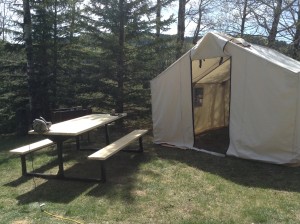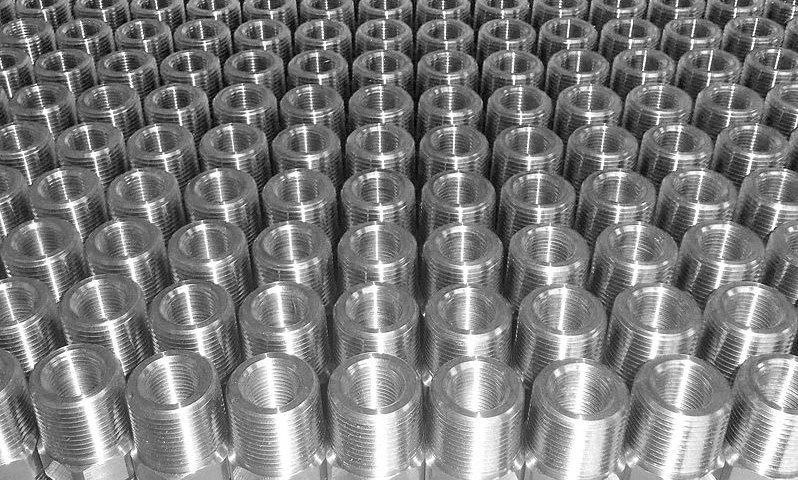The winds of change are blowing hard in Alberta, but the good news is change is never bad so we might as well embrace it.
Change frightens most people. We usually like to stay within our comfort zone and continue doing things the way we always have. It is easier and safer. Facing the unknown leaves us uncomfortable, as if we are all alone in the middle of the ocean, unsure of where we are and how to get back to the shore. To make matters worse, there is usually a swarm of hungry sharks (lenders) underneath us ready to chomp!
Yet, because our rapidly changing world is filled with ambiguity, shifting priorities, different expectations and new responsibilities, being flexible, creative and adaptive are critical skills for machine shops to lean on.
Change requires that we abandon the status quo, expand out of our comfort zones, and adapt quickly to new situations and ways of doing things. One of the most effective ways to cope with change and find new opportunities is to never stop learning. It is important for machine shop owners to keep their eyes and ears on the marketplace and gain ideas from every place they go and everyone they meet. Reading and listening to local, national and international news and trade publications, talking to suppliers and strengthening relationships with current and potential customers are all ways to create new opportunities to contribute to the economy in a meaningful way. Paying attention to upcoming trends can pave the way to new prospects as well.
During a recession, it is especially important for machine shops to diversify their markets. On average, companies tend to apply the 80/20 rule to their sales plan. That means, they focus on 80 per cent of the work from only 20 per cent of their customer base. This is in part because, during the boom time, work was plentiful and it made sense for machine shops to focus most of their attention on their top clients. But for small and mid-size manufacturers, the 80/20 rule can be disastrous during a recession. All it takes is one big customer to force discounts to the point where jobbing shops cannot make a profit. Or, the customer decides to go off-shore where the products appear to be cheaper. That is scary for small and mid-size manufacturers, especially when the shark lenders are circling.
So what is the answer for machine shops in Alberta? Market diversification. Manufacturers in Alberta need to shift away from dependence on the oil & gas sector, which is struggling at the moment, and focus on expanding the markets they serve and even search for unconventional markets, that may not be “glamorous,” but are underserved. Working on complicated projects that are not easy to do can also bring in additional lucrative work.
 For example, Corma Industries, our Calgary-based machine jobbing shop, was tasked with making 10 picnic tables and canvass tent frames for an outfitter, looking to supply his backcountry camps with equipment. The picnic table bases, shown in the photo, were made out of black powder coated steel tubing. The table tops were made out 2’ X 6’ pieces of standard Spruce-Pine-Fir (SPF) wood. The canvass tent frames were composed of custom aluminum.
For example, Corma Industries, our Calgary-based machine jobbing shop, was tasked with making 10 picnic tables and canvass tent frames for an outfitter, looking to supply his backcountry camps with equipment. The picnic table bases, shown in the photo, were made out of black powder coated steel tubing. The table tops were made out 2’ X 6’ pieces of standard Spruce-Pine-Fir (SPF) wood. The canvass tent frames were composed of custom aluminum.
Corma Industries also manufactured a hydraulic pump for a customer’s vintage tractor. It required us to think outside the box and reimagine the design to make it work. All this while maintaining our commitment to running small to medium volume production jobs.
Other strategies machine shops can adopt for changing environments include optimizing employee resources by cross-training personnel on various equipment. For example, the employee who normally runs the lathe can work the milling, laser-cutting and welding machines. This reduces job flow time, allowing work to get out the door faster and over to the customer.
Investing in automation will keep Alberta machine shops competitive with those in other provinces, who are further ahead in terms of automation. In addition to purchasing unmanned machines, buying supporting equipment such as sensors and equipment monitoring technologies will help streamline processes and reduce turnaround times.
Machine shops that are primed to thrive even in the economic downturn will be those who are quick to read and act on signals to change. Transformation involves experimentation, adaptation and being open and flexible to quick changes in direction, whether it the manufacturer’s products and services, business models, processes or strategies. Change is in the air, but it is never bad as long as we accept change and remain flexible in how we handle it.






